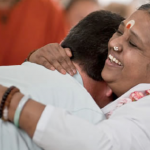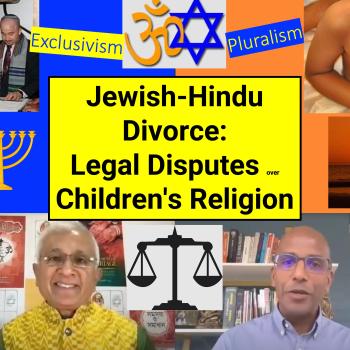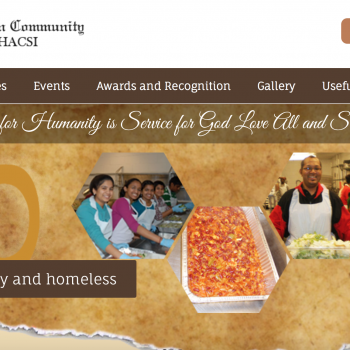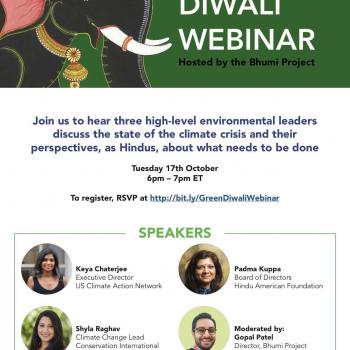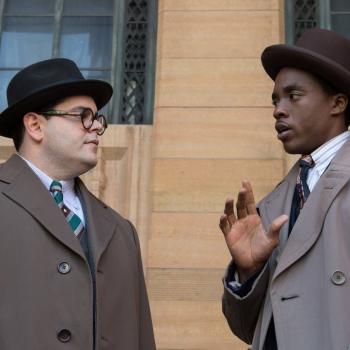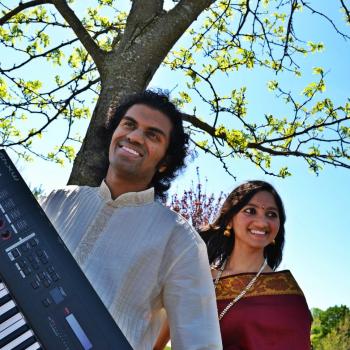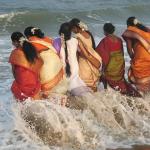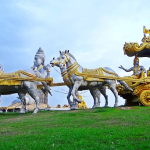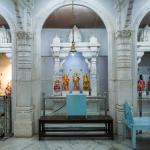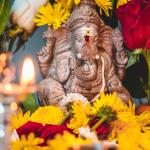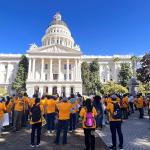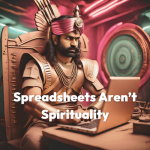The Story of God: Proof of God
In the third and final episode of Season 2 of National Geographic’s The Story of God, Morgan Freeman starts in New York City, with this basic premise: humans desire proof that God exists. While I was challenged throughout the episode to stay connected with the various beliefs and practices that were presented from traditions around the world, my mind and heart kept straying to another city, Chicago, and another seeker’s quest: Swami Vivekananda, who became a disciple of the 19th century mystic, Sri Ramakrishna. Swami Vivekananda brought his guru’s teachings, including proof of God, along with a host of other Hindu perspectives, when he attended the first World’s Parliament of Religions in 1893 in Chicago.
Freeman starts in NYC, asking where do we see evidence of God, and wondering if we have cut God out of our modern lives. He turns to various individuals and cultures to find those special moments when God breaks through. In covering the experience of an Indian immigrant who is Christian and felt the presence of God on 9/11/2001 during the destruction and chaos at World Trade Center, Freeman references our connection to God in times of crisis or when going through a horrifying experience. He spends time with a Buddhist master whose belief that the Divine is within us is evidenced through tummo. This advanced Tibetan Buddhist meditation practice raises body temperature, allowing this Buddhist master to sit in a subzero space – a bar in Manhattan – for an extended period. Freeman travels the world and attempts to engage us in a more pluralistic perspective by sharing the beliefs of a Muslim – whose proof of God is the Quran, and the scholarship of a scientist, who says that the more we learn about science, the more we find the proof that God exists. Freeman also describes certain fundamentals that parallel my Hindu outlook, asking whether God is within us and whether we can, each in our own way, find proof of God.
And this is how Swami Vivekananda, born Narendra Nath Dutta, a well-educated young man from an affluent family in Calcutta, found his spiritual guide and guru, Sri Ramakrishna. Narendra Nath Dutta, interested in spiritual practices and meditation from a young age, had gone to many spiritual leaders and sought proof of God. He went to see Sri Ramakrishna at the suggestion of his college professor and asked a question which he had put to several others but had received no satisfactory answer: “Sir, have you seen God?” Without a moment’s hesitation, Sri Ramakrishna replied: “Yes, I have. I see Him as clearly as I see you, only in a much intenser sense.” Sri Ramakrishna (1836-1886) had a hermitage in Dakshineswar and and his teachings and guidance appealed to this newest disciple. Eventually Narendra Nath Dutta became a monk, and as Swami Vivekananda, and with a few other disciples, monks and householders, started a monastic order known as the Ramakrishna Mission. He traveled around India, and then came to America, bringing his guru’s teachings to the first World Parliament of Religions in Chicago. In his first address to the leaders gathered at the Parliament, Vivekananda provided a “declaration to the world of the wonderful doctrine preached in the Gita:”
Whosoever comes to Me, through whatsoever form, I reach them; all are struggling through paths which in the end lead to Me.
And in later address, Swami Vivekananda provides another window into these teachings from which I and many Hindus around the world find inspiration:
So the best proof a Hindu sage gives about the soul, about God, is: “I have seen the soul; I have seen God.” And that is the only condition of perfection. The Hindu religion does not consist in struggles and attempts to believe a certain doctrine or dogma, but in realizing – not in believing, but in being and becoming.
In this final episode of The Story of God, Morgan Freeman takes us on a journey, showcasing that proof of God is found in the multitude of ways people of various cultures and traditions seek and find evidence of the Divine. This reinforces the pluralistic Hindu perspective reiterated by Swami Vivekananda, proving that pluralism is a verb – it is not just looking for evidence of God and believing what is provided at a point in time, but an ongoing effort to seek the Divine, in oneself and in the Other.
Watch a clip from “Proof of God”:
http://channel.nationalgeographic.com/the-story-of-god-with-morgan-freeman/episodes/proof-of-god/
The Story of God with Morgan Freeman: Proof of God
Premieres Monday, Jan. 30, at 9/8c


